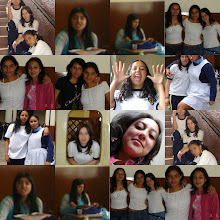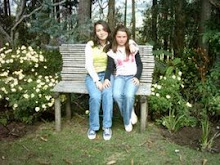FOREIGN LANGUAGES DEPARTMENT
Basic 2 2007-02
Grammar quiz, September 2007
I. VOCABULARY
Choose a, b or c to fill in the sentences with an appropriate word. (50 marks, 5 each correct answer)
1. People talk about a) achievements / b) stuff / c) profile when they refer to the things they have accomplished in their lives.
2. The a) plot / b) cast / c) script refers to the main events of a story.
3. The Majestic is the most a) big / b) luxurious / c) imaginative hotel in the city. It has five stars.
4. I a) like / b) can’t stand / c) feel ashamed when people chew gum during an oral presentation.
5. Painters have to deal with a) rhyme / b) shadows / c) clefs when painting pictures.
6. The a) landscape / b) remains / c) destination of the Parthenon are in Athens.
7. a) get in touch / b) loose touch / c) get on well is the same as start having contact with someone.
8. A child who has just learned to walk is a a) baby / b) toddler / c) teenager.
9. When you want to settle down, you a) get engaged / b) retire / c) look after someone.
10. Firefighters a) cope with / b) extinguish / c) push people trapped under debris.
II. GRAMMAR
The next one is a very short biography about Ernest Hemingway. Complete the paragraph with the appropriate word or form of the verb. Choose the correct letter a, b or c. (50 marks, 5 each correct answer)
Ernest Hemingway was born in 1899 in Chicago. During his life 1. was full of trips, he 2. his experiences as the basis for many of his novels. Hemingway’s novels 3. the most famous writings since the last century due to the passion he 4. in each one of his words.
He 5. the Nobel Prize for literature in 1954 6. he started to realize that his end 7. closer. His death 8. in 1961. Nowadays, he 9. being one of the most famous writers in history and many countries 10. his masterpieces to more than 10 languages so far.
1. a. where /b. when /c. which
2. a. has used /b. used /c. was using
3. a. have been /b. is /c. was
4. a. employ /b. had employed /c. employed
5. a. received /b. was receiving /c. has received
6. a. when /b. that /c. which
7. a. got /b. had gotten /c. was getting
8. a. will arrive /b. arrived /c. was arriving
9. a. is continuing /b. continues /c. continued
10. a. translated /b. are translating /c. have translated
Posted by GROUP









%5B1%5D.jpg)



No comments:
Post a Comment